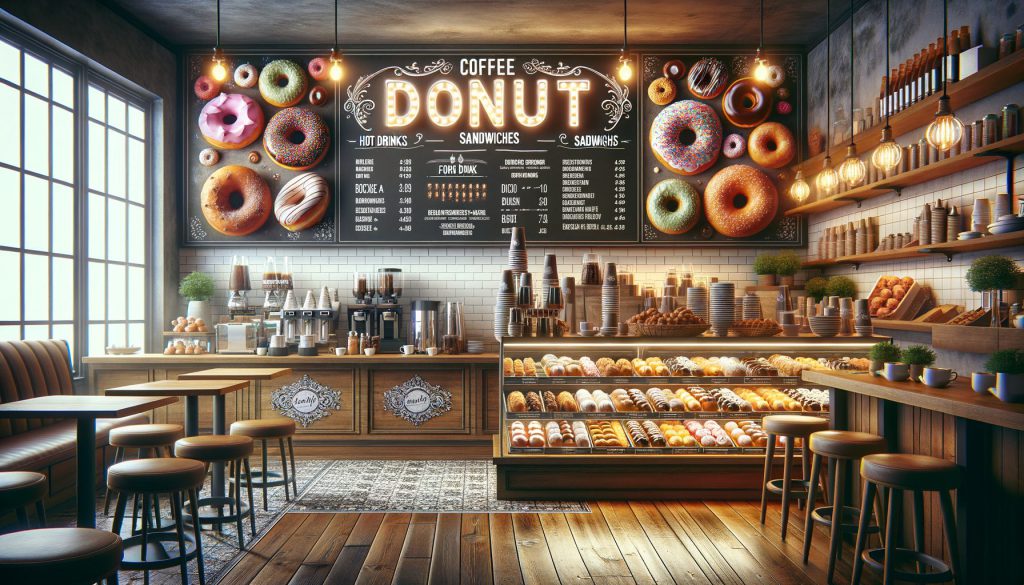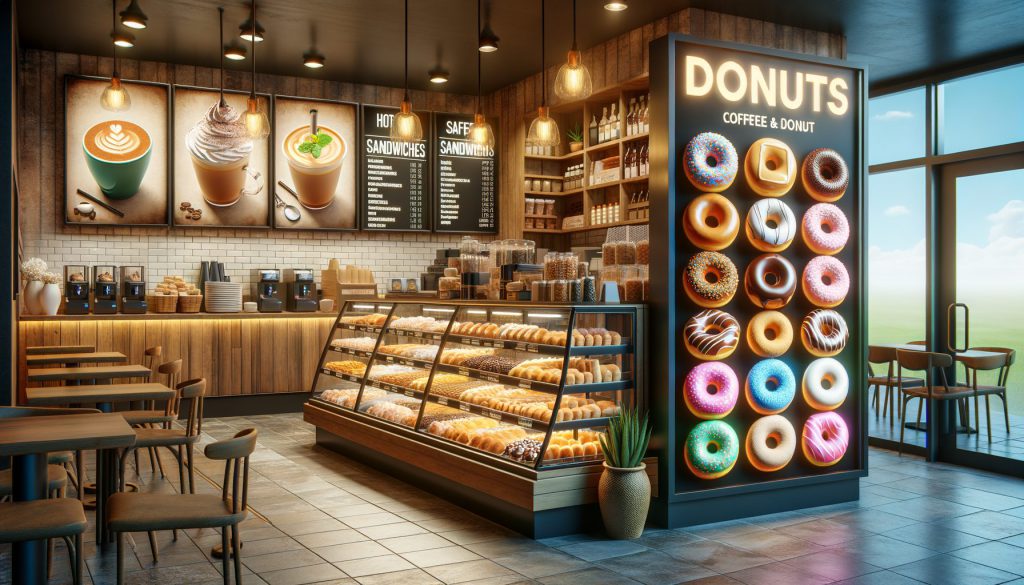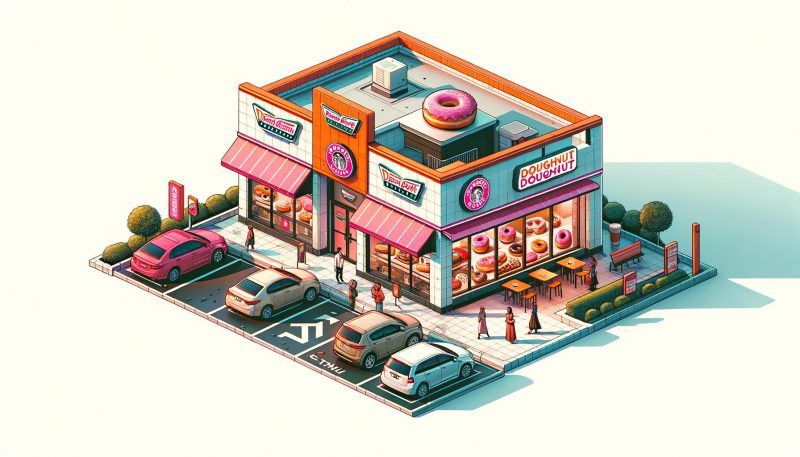Starting any business requires significant investments of time, energy, and money. For those looking to open a cafe, bakery, or coffee shop franchise, Dunkin’ offers opportunities and challenges worth considering.
Dunkin’ is a well-established brand in coffee, doughnuts, and baked goods, with over 12,000 locations worldwide and 8,000 in the United States alone. Founded in 1950 and rebranded from Dunkin’ Donuts to simply Dunkin’ in 2019, Dunkin’ enjoys customer loyalty and solid brand recognition. Becoming a Dunkin’ franchisee brings the possibility of tapping into the company’s supply chain, training resources, and marketing operations. However, the investment does not come cheap or without a possibly lengthy application process.
Upfront Costs
The upfront franchising fee to open one Dunkin’ location ranges from $40,000 to $90,000 based on location, which establishes the licensing contractual relationship with corporate headquarters. Most prime locations come at a premium cost. An additional $500,000 minimum net worth and $250,000 of liquid capital are also required.
Total initial investment costs vary from $100,000 for freestanding locations up to $1.7 million for large sites with drive-thru capabilities. Franchisees must secure real estate and equipment and possibly undergo construction, all with guidance but not direct financial support from Dunkin’.


Ongoing Fees
In addition to startup costs, franchisees pay monthly royalty and advertising fees. The monthly royalty fee, set at 5.9% of gross sales, helps fund continued operational support. The 5% advertising fee covers corporate marketing and promotions. So franchisees gain the backing of an international brand campaign while contributing consistent revenue to corporate media budgets.
Comparing Initial Investments In comparison to other franchises, Dunkin’s initial investment is lower than that of Krispy Kreme, which can top $1.9 million, but higher than Subway’s roughly $116,000 to $263,000. Both the upfront and ongoing fees represent significant financial commitments for franchisees.
Also read: How Much is a Zaxby’s Franchise?
The initial Dunkin’ franchise agreement runs for 20 years. Franchisees are expected to meet all financial obligations and comply with operational standards during this period to have the opportunity to renew for subsequent terms.
Advantages of the Model
What does a franchisee get in return for this investment? The well-established Dunkin’ brand offers strong name recognition and a loyal customer base that would take years to independently develop for a new cafe or bakery startup. Franchisees are buying into an economy of scale for supply distribution and leveraging recognizable branding for easier local marketing.
Dunkin’ also provides hands-on operational guidance: real estate site selection consulting, construction assistance, initial employee training, and tutorials for inventory ordering systems. The clear franchisee onboarding process aims to set each individual location up for financial sustainability.


However, corporate requirements mean limited creativity or customization. Franchisees must adhere to the core Dunkin’ branding and menu. So entrepreneurial freedom is exchanged for corporate operational standards.
The average operating profit hovers around 29% of gross sales for the brand, according to 2021 industry reports. However, depreciation and interest expenses, which reduce net earnings, are not disclosed. So bottom-line profitability depends on the particular market and specific location, which determine customer traffic flows.
A freestanding suburban shop or one located near office parks may generate more drive-up business, for example, compared to urban walk-in traffic patterns. As with any small business, local management, staffing levels, and operational decisions impact the store’s financial success. Franchisees should analyze potential costs, foot traffic expectations, and profit requirements before moving forward.
The Bottom Line
Does franchising with Dunkin’ offer a solid pathway to business ownership? The established brand provides clear benefits but at a substantial upfront cost. For entrepreneurs truly passionate about this industry, able to access startup capital, and ready to dive into intensive operational requirements, a Dunkin’ franchise may offer rewards worth the required dedication. However, those who expect an easy business endeavor or hope to retain creative flexibility may wish to consider coffee shop franchise models.





